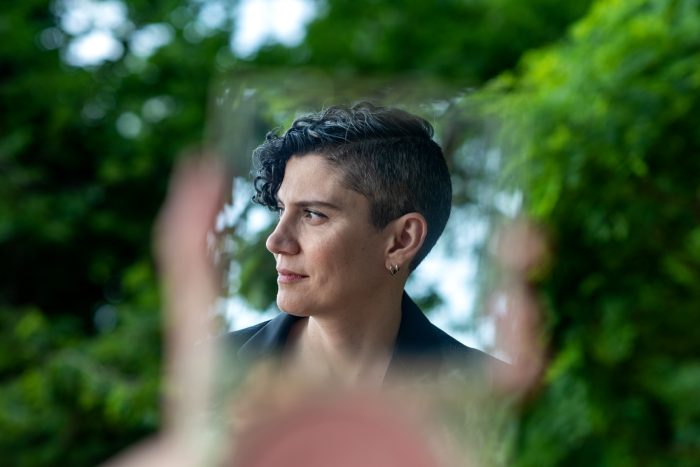I’m a musician and singer-songwriter, so I often think in musical or philosophical terms about life events.
Like everyone else, I’ve been incredibly affected by what is happening in the Middle East. I’m an empath and human tragedies always affect me deeply.
The other day I was thinking about it and I started singing a simple melody with the words: “You and me, me and you.” And I was playing with just two notes, notes that are next to each other on the piano keyboard, like C and D.
And then it hit me that those notes are neighbors and they are dissonant when played together.
I was also reflecting on how much I love dissonant sounds and clusters. I always write songs with 7th, 9th, 11th, or 13th chords. Those are all chords that involve the use of notes that are next to each other on the keyboard. In those chords though, the two dissonant notes don’t sound dissonant anymore and the result is delightful to my ears.
Because dissonance creates a sense of harmony!
It made me think that most of the dissonance in the world happens between towns, cities, states, and countries that are next to each other, that are neighbors. Think about all the fuss between New York and New Jersey, or between Pisa and Livorno in Italy (I’m Italian so I am more familiar with those rivalries). There is always some sort of thinking, some sort of mindset that “we are better than them” behind these rivalries.
We’ve seen again and again throughout history how hunger for more power turns rivalries into conflict, and the desire to conquer the other trying to expand a country’s hegemony.
So what if note C decides to try and impose itself on note D to conquer it or kill it, and vice versa? Well, the harmony ends right there—because dissonance creates harmony. But if there is no more dissonance, the harmony ends.
The problem is not the dissonance, the problem is when we try to end it. Our differences in opinion, skin color, sexual orientation, gender, gender identity, and more, create the harmony of humanity. In other words, our differences are our very beauty.
When we try to impose our points of view on others, that’s when the problems start. Some people will want everybody to sing on one note or dress in the same color or wear their hair in one hairdo. People who call others’ sexual orientation unnatural are committing the unnatural act of trying to flatten humanity and have it sing on one note. But that’s not the nature of humanity—that’s not what nature is about.
When we go out in nature, our eyes and brains are refreshed by the sight of trees, flowers, mountains, and birds because of the variety of colors, because we are stimulated by different scents. All of it is inebriating, giving us a sense of aliveness!
And doesn’t the conversation get more interesting when there are different opinions at the table? When someone says something that challenges me or makes me think about an issue differently, there is a huge opportunity for growth and expansion right there. But when two conflicting voices at the table escalate, everybody else is silenced and traumatized, the concert of voices ends, the notes of the chord that sounded so harmonious to my ear disappear. C is trying to take over D, and harmony ends right there.
Harmony doesn’t mean that we are all wearing blue or thinking the same way. Harmony is the sum of our differences.
Thomas Wolfe said: “We are the sum of all our parts.” We are the sum of all our parts. We need to have different parts, we need to sing on different notes, we need to wear different colors, and we need to have different opinions. It’s fundamental to our existence as humans.
That is harmony.
~
Please consider Boosting our authors’ articles in their first week to help them win Elephant’s Ecosystem so they can get paid and write more.
~

 Share on bsky
Share on bsky







Read 2 comments and reply